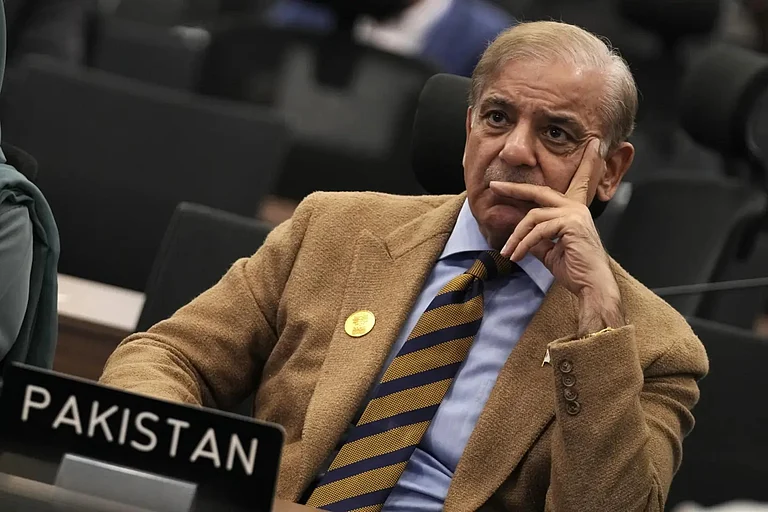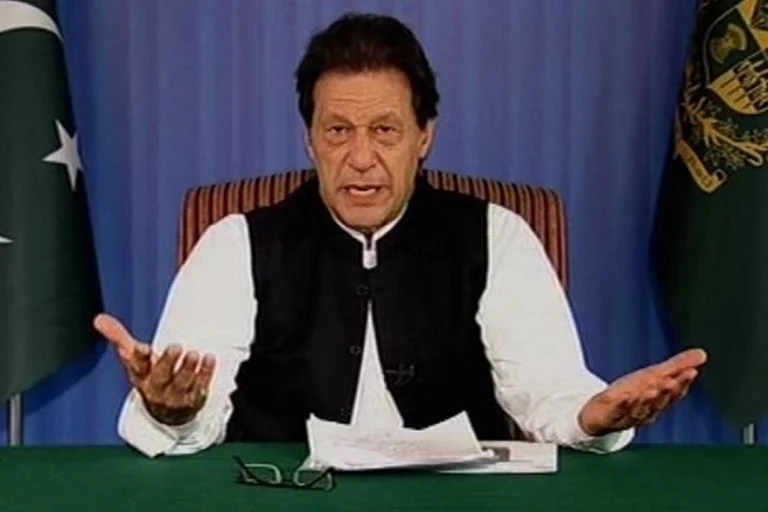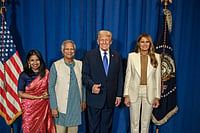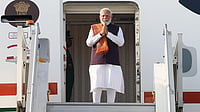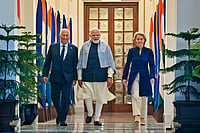Kashmir has been at the heart of the India-Pakistan conflict since Independence and continues to remain a major issue. People in the Kashmir Valley watch developments in Islamabad with interest and look to Pakistan to take up their cause at world forums — more so since August 2019 when the region’s special status was scrapped by the Narendra Modi government and it was downgraded from a state to a union territory.
Newly-minted Pakistani Prime Minister Shehbaz Sharif did not disappoint Kashmiris. In his first speech after being sworn in, he asked the National Assembly —Pakistan’s Parliament— to pass a resolution for the freedom of Kashmiris and Palestinians. “Let’s all come together […] and the National Assembly should pass a resolution for the freedom of Kashmiris and Palestinians,” said Shehbaz.
What such a resolution will achieve is open to question but it would perhaps help to get Imran Khan’s Pakistan-Tehreek-e-Insaf (PTI) members to cooperate with the government at least on one issue. Imran as Prime Minister of Pakistan had downgraded diplomatic ties with India after the abrogation of Article 370 and had vowed not to talk to New Delhi till J&K’s special status is restored. He had promised Kashmiris that he would be their voice and raise Kashmir at every forum around the world. He did so but it made little difference on the ground. The Modi government was able to swat off the charges as India’s internal issue.
Kashmir remains a must-mention for Pakistani leaders as down the years it has become what Islamabad terms as the ‘core’ issue with India. “Every Pakistani leader has raised the Kashmir issue in speeches since 1948. Perhaps they should also speak about what Pakistan, Pakistanis, and Kashmiris have got from this repetitive raising of the issue in 76 years,” said Husain Haqqani, Director of South and Central Asia at the Hudson Institute and a former Pakistani ambassador to the United States, on X (formerly Twitter).
After the abrogation of Article 370, India will refuse to discuss Kashmir with Pakistan. Moreover, a weak government like Shehbaz’s will be in no position to agree to talks without Kashmir on the table. However, in Pakistan, the Army calls the shots in such matters and much will also depend on whether the Army backs Shehbaz. The February 2021 ceasefire on the Line of Control (LoC) —the de facto India-Pakistan border in Kashmir— drawn up between the military leadership of both countries has survived for three years despite relations being the deep freeze since August 2019.
In Kashmir, there is always the hope that a thaw in ties between India and Pakistan will lead to an easing of travel restrictions and easier access for divided families. At one time, there were also buses running between Delhi and Lahore as well as Srinagar and Muzaffarabad in Pakistan. Pakistan suspended the Delhi-Lahore bus after the scrapping of special status for Kashmir. The Srinagar-Muzaffarabad bus service started in 2005 was stopped by India after the Pulwama attack of February 2019.
The possibility of any easing of tension before national elections in India are over is unrealistic. After the elections, with Modi likely to be back for another five years, New Delhi may take a fresh look at the situation. But, for now, with the government in election mode, this will be on hold. Modi congratulated his counterpart Shehbaz on X but kept it business-like. There was no mention of either future talks or mention of a stop to terrorism emanating from Pakistan.
While it is well-known that the Sharif brothers are keen on normalising ties with India, the new government has too much on its plate to be in a position to invest time and effort in peacemaking. The priority for Shehbaz is to get the economy back on track, negotiate another agreement with the International Monetary Fund (IMF), and get down to taking unpopular decisions that the IMF is bound to recommend.
For Pakistan’s poor, life is already unbearable and further hikes in prices of food and other essentials will lead to more unrest. Whether Shehbaz’s coalition can survive the demands and pressures of its coalition partners remains to be seen. To top it all, Imran Khan’s supporters will be snapping at the heels of the new government. In short, peace diplomacy for now is on the back burner.










